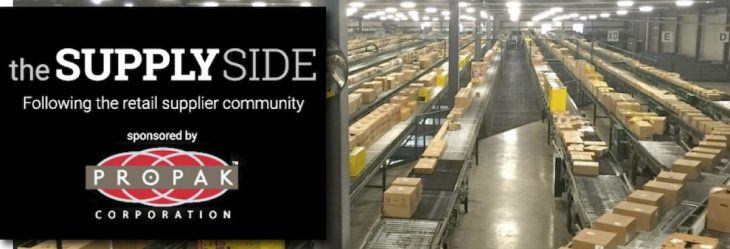The Supply Side: Wal-Mart’s recent corporate downsizing raises questions among suppliers
by January 23, 2017 2:47 pm 4,105 views

Editor’s note: The Supply Side section of Talk Business & Politics focuses on the companies, organizations, issues and individuals engaged in providing products and services to retailers. The Supply Side is managed by Talk Business & Politics and sponsored by Propak Logistics.
–––––––––––––––––––––––
One of the areas hit deep with layoffs at Wal-Mart corporate was the replenishment division – the people who ensure products get re-ordered in a timely fashion so that they are always in stock.
Insiders said about 200 replenishment-related positions were eliminated last week around replenishment and Order Management Systems with men’s apparel and produce being two of the categories seeing potentially the most disruption.
The cutbacks are believed to be directly related to the retailer’s Global Replenishment System, an expensive investment in just-in-time inventory management that replaced Inforem, the system used by Wal-Mart for decades. Inforem used an upward forecast modeling system, the opposite from the downward forecasting model used in GRS. Wal-Mart spent the past two years transitioning suppliers to GRS which is designed to help the retailer do more with less. The goal of GRS is to improve stocking, while overall inventory decreases. Now it looks there will be less personnel as well.
Feedback about GRS from suppliers seeking to remain anonymous is mixed. Some say the system is often down, while others have seen problems forecasting demand for seasonal or new items. Those with positive results are often products with great sales histories. A common complaint is that replenishment managers were too busy often overseeing thousands of items for multiple suppliers and buyers. Given this workload making contact with the replenishment manager has often been challenging, especially for the smaller suppliers with just one or two items. For many, personnel cuts to this department seemed counter-intuitive given their importance.
News of the replenishment cutbacks traveled quickly Friday (Jan. 20) and suppliers were sending emails to their replenishment managers to see if they were impacted.
“There is concern that action items will be delayed as a result and their business won’t get the attention it needs. I think, overall, suppliers want to know next steps and to my knowledge, there has not been any communications to ease their concerns,” said Jami Dennis, CEO of Bentonville-based Vendor Masters. “I don’t think there is a cookie cutter fix for all categories when it comes to replenishment.”

“Suppliers must be able to collaborate on forecasts so they can properly schedule production to ensure they remained stocked. We have one replenishment manager that hosts weekly calls to ensure we all stay informed and are working the same plan. Communication and collaboration is key with the replenishment manager. As suppliers, we can really only identify, research and communicate and we need to have a collaborative partner on the other end to help make an impact,” Dennis explained.
Her advice to suppliers with questions is to find out who their point person is and ask for clear guidance on performance metrics and expectations.
“Know how to run weekly reports, monitoring forecast accuracy, out of stocks and supply chain timing and fulfillment compliance. Focus on what you (the supplier) can do to ensure that their inventory stays flowing in ahead of demand,” Dennis added.
While it may be unknown why Wal-Mart is reportedly making deep cuts in its replenishment division, Clint Lazenby, co-founder of #OnShelf, said he believes Wal-Mart has thought this through because management knows how important replenishment is to the business. He said it’s important for suppliers to take a deep breath and listen for the plan going forward.
Perhaps the retailer is counting on more automation or maybe they plan to roll out additional tools to help suppliers take more control of replenishment. Wal-Mart will hold a summit for suppliers in Bentonville on Feb. 14-15 at which more information could be disseminated.
